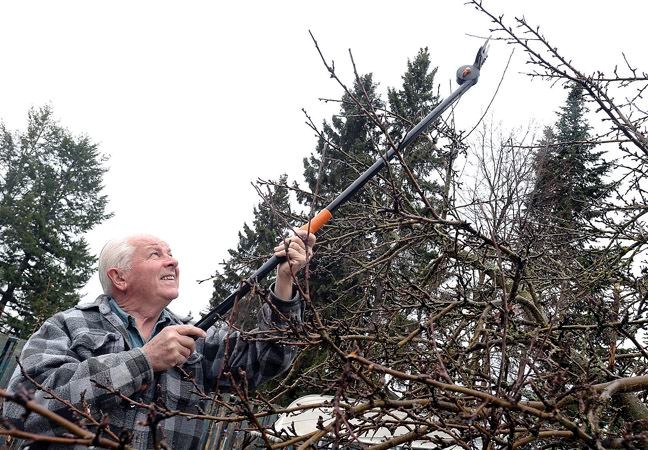Growing local is vital to personal and community health.
That's a message longtime urban farming advocate Don Bassermann shares with Prince George, bringing a focus on food security back to the basics.
"The number one thing in my heart is grow your own," says Bassermann, his voice excited as he does a mental walk through of his garden. He knows the space so well, he only pauses to provide tips as he runs through the usual seed suspects.
There are his three raspberry patches, the rhubarb patch, a stack of tomatoes in containers, and more in a greenhouse made entirely of recycled materials. In his raised beds he harvests squash, peas, beans and herbs. All along the fences, heat loving plants. And that just skims the surface.
He realizes that might seem an overwhelming task to newcomers, so his advice is quite simple:
"If you haven't been gardening, start small," says Bassermann, who served six terms on Prince George city council and is a board member of the Northern Agricultural Initiative Advisory Committee.
"Herbs grow really, really well, particularly in containers."
Also start at the base.
"To a gardener, compost is gold."
The trick, he says is to stack that compost high and eventually the mound captures the sun's heat and starts to decompose.
"I've changed the soil heat two or three degrees," he says. "When those roots finally reach that decomposing material it's like somebody opened the pantry door to the plant."
The benefits of gardening goes well beyond the uptick in veggie consumption, he says.
"It's a fair bit of up-and-down bending, stretching, reaching, lifting, digging, pulling - which is modest exercise - and in gardening it has to happen nearly every day."
Eating your own harvest doesn't need to stop in the garden.
"There's so much food naturally in the wild," says Bassermann, adding he'll usually harvest stinging nettles, fiddleheads, wild asparagus and saskatoon berries.
"There's so much foraged food available to us that most of us don't know hardly anything about," says Bassermann, who is teaching himself about wild mushrooms.
The impact of being outdoors should not be ignored, either.
"Just the effect of good quality bright light on our body and our mental health is really quite significant," says Bassermann, adding it also gives you a chance to wave as neighbours pass by and that his garden is always a great conversation starter.
"It's a very social exercise."
That community focus can also be adopted by those who just can't find the time, means or desire to grow their own.
"The reality is many of us, won't grow our own or are not able to," he says.
Even $10 out of a family's weekly grocery budget would make a huge difference for local growers.
"We will do a tremendous amount stabilizing and strengthen the local food suppliers," he says of that approach. "I'm all about economic development."
It's smart for a community to be less reliant on trucking in their food sources, says Bassermann, who has months worth of frozen meat and fresh preserves packed in three deep freezes.
"Part of what keeps me focused on moving forward is we have a huge opportunity here in the north in agriculture. We just do not exercise the potential anywhere near what we could."



